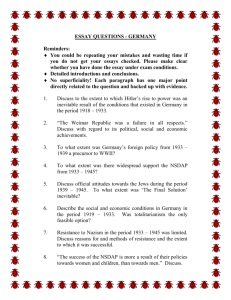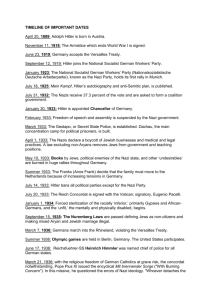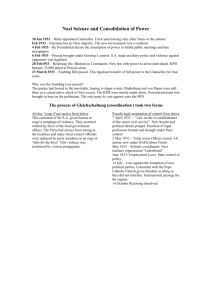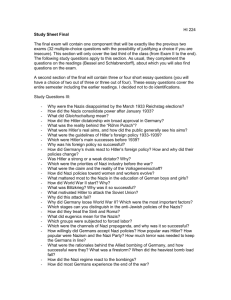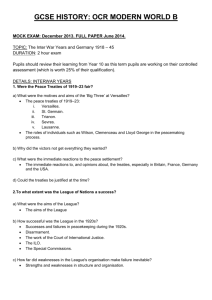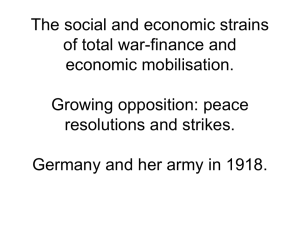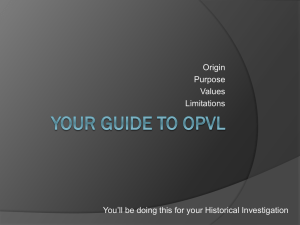Past Papers
advertisement
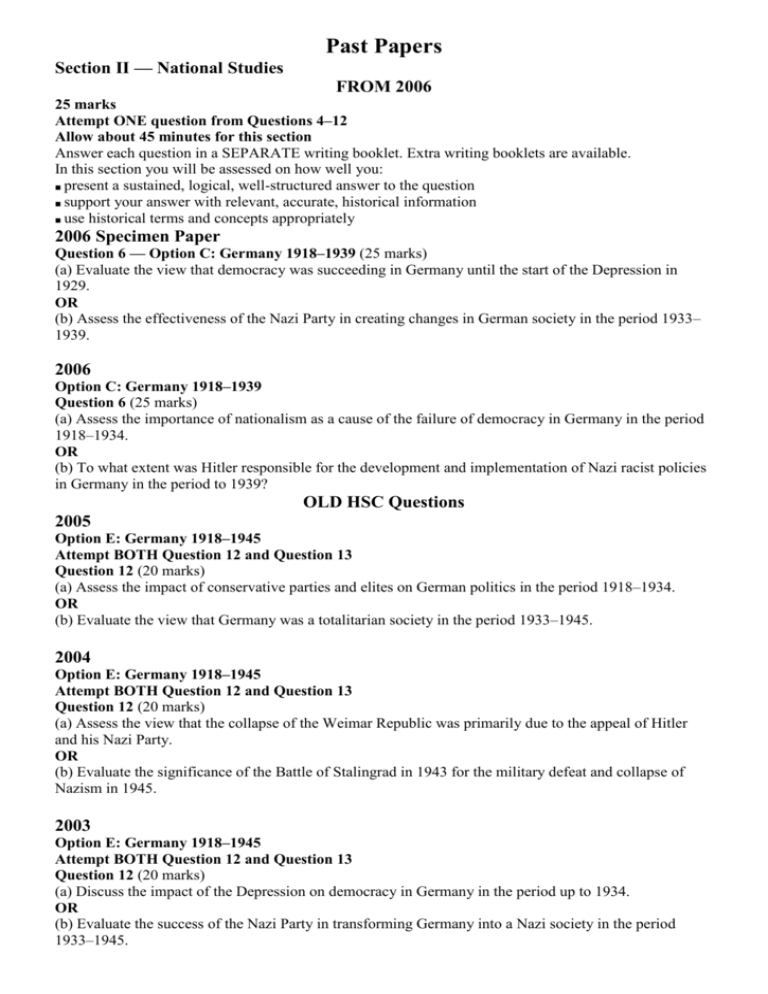
Past Papers Section II — National Studies FROM 2006 25 marks Attempt ONE question from Questions 4–12 Allow about 45 minutes for this section Answer each question in a SEPARATE writing booklet. Extra writing booklets are available. In this section you will be assessed on how well you: ■ present a sustained, logical, well-structured answer to the question ■ support your answer with relevant, accurate, historical information ■ use historical terms and concepts appropriately 2006 Specimen Paper Question 6 — Option C: Germany 1918–1939 (25 marks) (a) Evaluate the view that democracy was succeeding in Germany until the start of the Depression in 1929. OR (b) Assess the effectiveness of the Nazi Party in creating changes in German society in the period 1933– 1939. 2006 Option C: Germany 1918–1939 Question 6 (25 marks) (a) Assess the importance of nationalism as a cause of the failure of democracy in Germany in the period 1918–1934. OR (b) To what extent was Hitler responsible for the development and implementation of Nazi racist policies in Germany in the period to 1939? OLD HSC Questions 2005 Option E: Germany 1918–1945 Attempt BOTH Question 12 and Question 13 Question 12 (20 marks) (a) Assess the impact of conservative parties and elites on German politics in the period 1918–1934. OR (b) Evaluate the view that Germany was a totalitarian society in the period 1933–1945. 2004 Option E: Germany 1918–1945 Attempt BOTH Question 12 and Question 13 Question 12 (20 marks) (a) Assess the view that the collapse of the Weimar Republic was primarily due to the appeal of Hitler and his Nazi Party. OR (b) Evaluate the significance of the Battle of Stalingrad in 1943 for the military defeat and collapse of Nazism in 1945. 2003 Option E: Germany 1918–1945 Attempt BOTH Question 12 and Question 13 Question 12 (20 marks) (a) Discuss the impact of the Depression on democracy in Germany in the period up to 1934. OR (b) Evaluate the success of the Nazi Party in transforming Germany into a Nazi society in the period 1933–1945. 2002 Option E: Germany 1918–1945 Attempt BOTH Question 12 and Question 13 Question 12 (20 marks) (a) Assess the impact of the Nazi Party on German society up to and including 1933. OR (b) Explain the nature and impact of Nazi propaganda, terror and repression on the Jewish community between 1933 and 1945. 2001 Option E: Germany 1918–1945 Attempt BOTH Question 12 and Question 13 Question 12 (20 marks) (a) Account for the development of militarism in Germany between 1928 and 1945. OR (b) Explain how Hitler made use of racism in German society between 1928 and 1945. 2000 QUESTION 14 To what extent was Weimar Germany a stable and democratic society by 1929? QUESTION 15 How important was the Great Depression to Hitler’s gaining power in 1933? QUESTION 16 To what extent was Germany transformed into a Nazi totalitarian state between 1933 and 1939? QUESTION 17 Why was Germany defeated in 1945? 1999 QUESTION 14 What impact did military defeat have on German politics in the period from 1918 to 1924? QUESTION 15 Why had the Nazis become the dominant political force in Germany by 1933? Use evidence from the period between 1925 and 1933 to support your answer. QUESTION 16 How did the Nazis reshape German society in the period from 1933 to 1939? QUESTION 17 Hitler’s war strategy and unrealistic aims made Germany’s defeat inevitable. To what extent do you agree or disagree with this statement? Give evidence for your answer.
